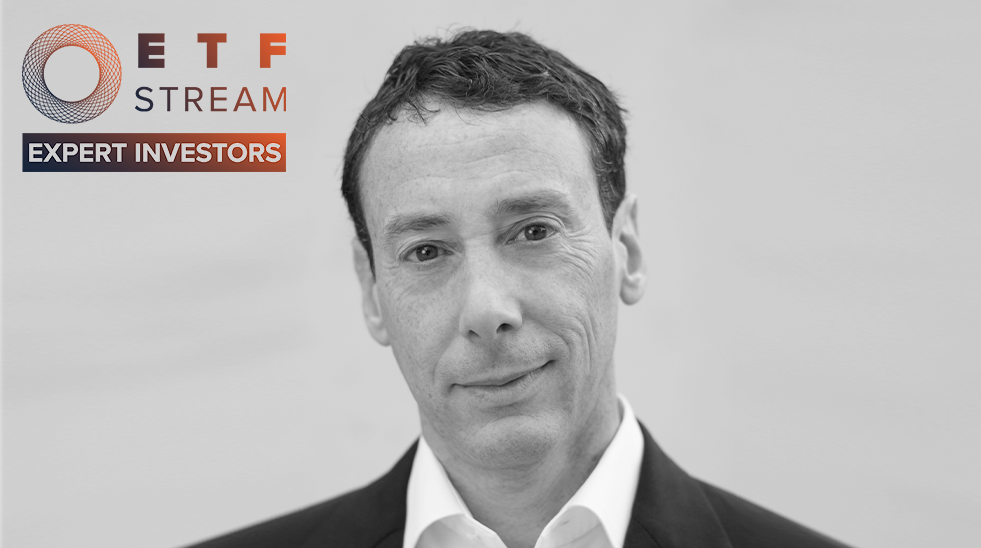Next in the hot seat in
ETF Stream’s
, where we interview fund buyers about their ETF usage on a fortnightly basis, is Steven Goldin, founder and managing partner at Parala Capital.
Prior to founding Parala Capital, Goldin was global head of strategy indices at S&P Dow Jones Indices where he helped launch a number of indices across smart beta, alternatives and themes and resulted in $25bn in new index-linked assets.
How much of your portfolio is made up of ETFs?
Parala uses ETFs to gain efficient exposure to asset classes, markets, sectors, styles and other risk factors. They comprise a large portion of our multi-asset and equity portfolio strategies.
When did you start investing in ETFs?
Since the very beginning. Parala’s founding partners were involved early on in the design and implementation of passive index and factor based portfolios for investors from the early 1990s which pre-dated the launch of ETFs.
I have always had a passion for index based investing to gain efficient access to desired investment exposures at a reasonable price and spent five or so great years at S&P Dow Jones Indices leading their strategy index business (the precursor to what became smart beta).
What asset classes do you tend to invest in through ETFs?
We invest across a broad spectrum of ETFs in order to provide efficient access to asset classes, markets, sectors, styles and a range of risk factors.
Which areas would you avoid?
We tend to avoid the smart beta and multi-factor based ETFs with less rigorous support found in the academic literature.
Smart beta is not a panacea for the challenges faced by active managers in delivering alpha and should not be thought of as such.
What is your methodology for selecting ETFs?
We use ETFs to gain efficient, liquid, low-cost access to pre-determined investment exposures across asset classes, markets, sectors and risk factors.
We have a rigorous and systematic methodology for selecting ETFs.
In terms of some of the key criteria:
They must closely track the specific investment exposures we require for our client portfolio strategies
Meet specific size, liquidity and expense criteria
Use sampling or full replication
Have a transparent underlying index methodology
Be issued by an ETF sponsor that passes
Do you have an ETF provider preference?
We use a variety of ETF providers and believe that diversity is good for competition and innovation.
We do not have preferred ETFs provider although size, liquidity and expenses can narrow the list.
What ETF products would you like to see more of?
We would like to see the continued expansion of ETFs across asset classes. There remains a lot of room for innovation across fixed income and credit.
Are there any areas ETF provider could improve?
A lot of value for ETFs and reason for their success comes from transparency, efficiency and low cost. It is important that this is upheld.
We are seeing a lot of active managers launching ETFs based on their own indices (i.e. self-indexing). There is a logic to this from asset managers wishing to save costs but active managers do not necessarily have transparency, index design and the ability to calculate, maintain indices in their DNA, and this can lead to issues that lie just below the surface.
Some active managers simply view ETFs as a tax-efficient wrapper and launch ETFs with that in mind.
These active ETFs are quite different to passive ETFs whose objective has historically been the low-cost, efficient tracking of a transparent, independently calculated index methodology.
Therefore, the characteristics of what ETFs have been known for and valued in the past will likely continue to evolve.
Expert Investors
Expert investors is a series brought to you by ETF Stream where on a fortnightly basis we interview the key individuals from across the fund selection and research space about the ETF ecosystem.
Fund selection plays a crucial role in portfolio construction. Once the asset allocation decision has been made, these individuals need to decide how they want to be exposed, be it through a mutual fund, investment trust or ETF.
Over the years, ETFs have become an increasingly important part of any investor’s toolkit. This series will show how the key players across the fund selection space use ETFs in their portfolios while asking what more can be done by the ETF providers to help with this increasing adoption.
To read the previous edition of Expert Investors with Mark Northway, investment manager at Sparrows Capital, click here.
Sign up to ETF Stream’s weekly email here



